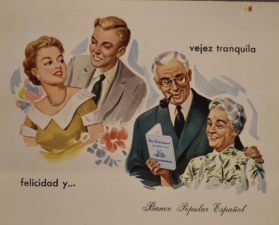In this blog we are delighted to hear from Professor Emma Griffin about her new monograph, Bread Winner: An Intimate History of the Victorian Economy.
I’ve have been interested in the historical possibilities of life-writing since chancing upon some working-class autobiographies whilst studying for my PhD in the 1990s. At that time I was working on working-class sports and pastimes for which the autobiographies were not particularly illuminating, but in the mid-2000s I was asked to create a document-based ‘special subject’ for third year students and I decided to try and track down some of those records which I had found so exciting and rich with opportunities.
I soon found that the autobiographies were every bit as interesting as I had imagined, and the special subject grew into a book about working-class life during the industrial revolution – Liberty’s Dawn. But the focus on the industrial revolution forced me to look at the period roughly 1750-1850 and I found that these dates imposed a very annoying limitation: almost all the autobiographies covering these years were written by men. Of course, these male writers had mothers, sisters, girlfriends, wives and daughters, so their writing did provide some clues about the lives of women. Nonetheless, it felt to me that something important was missing, that the story written about these women might be different from the stories they would have told themselves.
My most recent book, Bread Winner, has grown out of this concern. Like Liberty’s Dawn it uses working-class life-writing, but it covers the Victorian and Edwardian years c.1830-1914, and as a result it includes far more writing by women – I use a collection over 600 autobiographies, of which one-third were authored by women. In the book, I show that when we insert women into our narratives, we don’t just learn more about women’s lives – though of course we do, and it’s fascinating! We are also able to see that areas of life that are not usually considered to be gendered, such as economic growth or living standards, start to look very different when women’s experiences are included.
In contrast to the extensive debates about living standards during the industrial revolution, the Victorian period is feted as a unique – if short-lived – moment of British greatness, which enjoyed sustained rises in GDP, real wages, and all other measurable elements of economic growth. But Victorian Britain was also a place where most women did not work, and those who did clustered around the very low-wage margins of the economy. This was also the era of the so-called ‘breadwinner wage’ – a wage that was substantial enough for a man to keep his wife so she could keep the house. As a result, Victorian prosperity did not simply make the nation richer, it also diverted a greater share of the nation’s wealth directly to men’s hands, and this had far-reaching implications for both gender inequality and for women’s living standards.
So long as men conformed to social expectations, working hard and sharing their wages with their wives, the fit between real wages and living standards was good. Around a third of the autobiographers had a father present throughout their childhood who shared his earnings, and whilst this was rarely sufficient to ensure luxurious living, it certainly ensured some degree of comfort and created an equivalence between male earnings and family living conditions.
But over and again, high male wages did not have this outcome. Indeed, one of the most extraordinary and unexpected discoveries from the autobiographies is that a good male wage tilted the traditional balance of power between husbands and wives firmly in the favour of men. The low wages of pre-industrial Britain had kept families poor, but they had also established an equality within the household between the value of male wages and the value of the female labour that transformed that money into meals and comfort. So long as a male worker could not afford to purchase cooked meals, he could only fulfil his subsistence needs by handing his full wage to his wife – he was every bit as dependent upon his wife’s efforts to provide habitable lodging, cooked meals, and adequate clothing as she was dependent upon his wage. The high male earnings created by industrialisation snapped apart this equality between wage-earning husbands and their non-wage-earning wives and children. A man could now maintain a reasonable standard of living by depositing a part of his wage with his wife and keeping a part back for his own personal consumption. The autobiographies provide many examples of the different ways in which men might fail to provide for their families: some worked irregularly, whilst others kept back their wages for themselves, either to spend on hobbies and interests – or, more commonly, because they were drinking heavily. Furthermore, some families lacked fathers at all – the death rate was high, and so too was the desertion rate. When all these problems are tallied up, it is clear that almost half of all the autobiographers lacked a reliable breadwinner during some part of their childhood. As a result, a sizeable proportion of all households were struggling to get by without the full benefit of a male wage, and for these families, movements in male wages were largely irrelevant.
My focus on how resources are shared within families, taught me that men and women’s experiences did not necessarily move in sympathy, they sometimes diverged. Above all, then, the project has taught me that integrating women’s experiences does not provide a more complete picture of Victorian prosperity, it provides a picture that is fundamentally different.
Emma Griffin is Professor of Modern British History at UEA. She is the author of five books – the most recent, Bread Winner: An Intimate History of the Victorian Economy, is published by Yale University Press in 2020. She is the co-editor of Historical Journal and President Elect of the Royal Historical Society.

